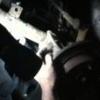Tell me about...turbochargers.
-
Similar Content
-
Tell me about: Triumph Mayflower 1 2 3 4
By vulgalour,
- 105 replies
- 13,490 views
-
Afternoon collection about to commence 1 2
By 95 quid Peugeot,
- 56 replies
- 3,613 views
-
- 199 replies
- 19,139 views
-
- 166 replies
- 16,789 views
-
Interesting article about potholes, and vehicle weight.
By Barry Cade,
- 17 replies
- 1,015 views
-






Recommended Posts
Create an account or sign in to comment
You need to be a member in order to leave a comment
Create an account
Sign up for a new account in our community. It's easy!
Register a new accountSign in
Already have an account? Sign in here.
Sign In Now